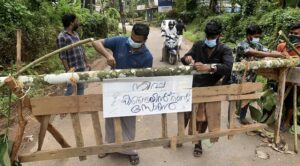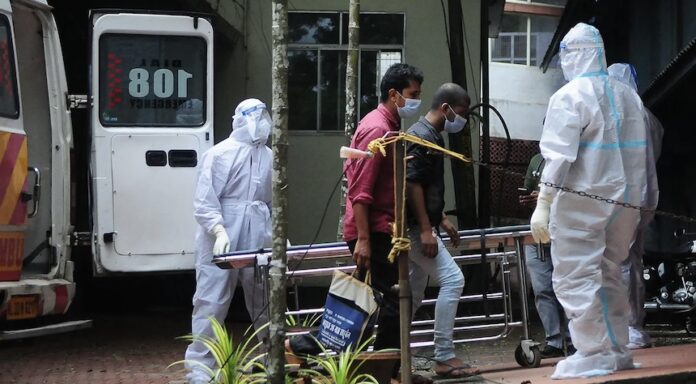Health officials in India raced Thursday to contain a Nipah outbreak, which has already claimed two lives and is estimated by the World Health Organization to have a 75% fatality rate.
Reuters reports that around 800 people were tested in the southern state of Kerala in the past few days. Two adults and a young child received positive test results, and they were admitted to the hospital.
Veena Georgie, the health minister of the state, said to the news agency: “We test human beings… At the same time, experts collect fluid samples from areas in the forest that could be a hotspot for its spread.” “We are at a phase of hypervigilance, and detection.”
Reuters reports that public offices, government buildings, and religious institutions in some parts of the area have been closed as samples of animal droppings, bat urine, and half-eaten fruits were taken from the village of the first victim.

Fruit bats are the main carriers of the Nipah Virus in nature.
The CDC states that NiV can also cause disease in pigs or humans.
WHO estimates that the Nipah death rate ranges from 40% to 75%. However, it is “variable by outbreak depending on local capability for epidemiological surveillance” and “clinical management.”

WHO said that the initial symptoms of infection include fever, headaches (muscle pain), nausea, and sore throat. This can be followed up by dizziness, drowsiness, and altered consciousness. Atypical pneumonia, severe respiratory problems, and acute respiratory distress can be experienced by some people. In severe cases, encephalitis and seizures can occur. Comas usually develop within 24 to 48 hours.
The CDC states that the virus can be transmitted by direct contact with animals infected or human beings and their bodily liquids or by eating foods contaminated with animal fluids.
According to the CDC, “treatment is limited to supportive measures, such as rest, hydration and treating symptoms as they arise.”
Reuters reported that a series of Nipah outbreaks in India, Bangladesh, and Kerala in India killed 62 people between 2001 and 2018.




